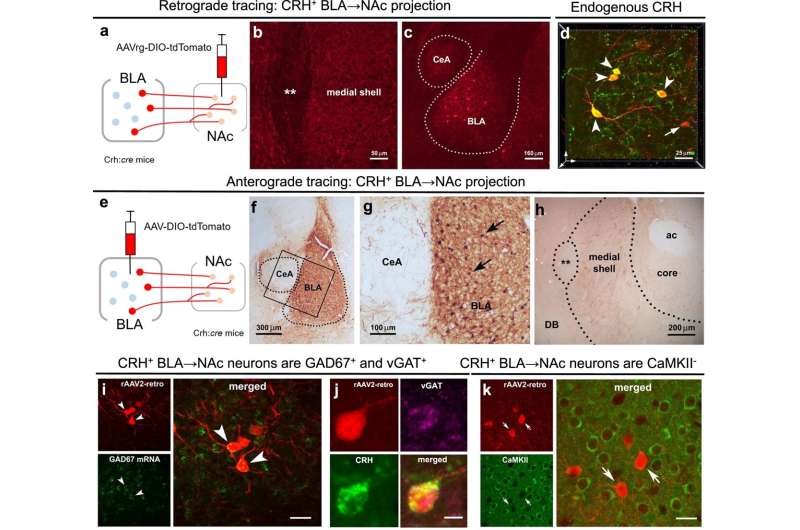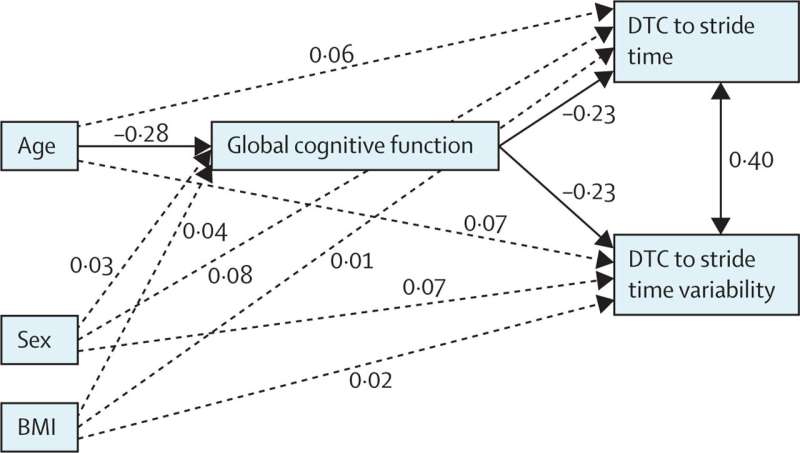
A brand new mind connection found out through College of California, Irvine researchers can provide an explanation for how early-life pressure and adversity cause disrupted operation of the mind’s praise circuit, providing a brand new healing goal for treating psychological sickness. Impaired serve as of this circuit is believed to underlie a number of main issues, akin to despair, substance abuse and over the top risk-taking.
In a piece of writing lately revealed on-line in Nature Communications, Dr. Tallie Z. Baram, senior writer and UCI Donald Bren Professor and Prominent Professor within the Departments of Anatomy & Neurobiology, Pediatrics, Neurology and Body structure & Biophysics, and Matt Birnie, lead writer and a postdoctoral researcher, describe the cell adjustments within the mind’s circuitry led to through publicity to adversity throughout adolescence.
“We all know that early-life pressure affects the mind, however till now, we did not understand how,” Baram stated. “Our staff interested by figuring out probably stress-sensitive mind pathways. We found out a brand new pathway inside the praise circuit that expresses a molecule known as corticotropin-releasing hormone that controls our responses to fret. We discovered that antagonistic reports reason this mind pathway to be overactive.”
“Those adjustments to the pathway disrupt praise behaviors, decreasing excitement and motivation for a laugh, meals and intercourse cues in mice,” she stated. “In people, such behavioral adjustments, known as ‘anhedonia,’ are related to emotional issues. Importantly, we found out that once we silence this pathway the usage of trendy era, we repair the mind’s standard praise behaviors.”
Researchers mapped the entire CRH-expressing connections to the nucleus accumbens, a excitement and motivation hub within the mind, and located a prior to now unknown projection bobbing up from the basolateral amygdala. Along with CRH, projection fibers co-expressed gama-aminobutyric acid. They discovered that this new pathway, when stimulated, suppresses various kinds of praise behaviors in male mice.
The learn about concerned two teams of female and male mice. One used to be uncovered to adversity early in lifestyles through residing for every week in cages with restricted bedding and nesting subject material, and the opposite used to be reared in standard cages. As adults, the early adversity-experiencing male mice had no real interest in candy meals or intercourse cues in comparison to in most cases reared mice. By contrast, adversity-experiencing women craved wealthy, candy meals. Inhibiting the pathway restored standard praise behaviors in men, but it had no impact in women.
“We consider that our findings supply leap forward insights into the affect of early-life adversity on mind construction and in particular on keep an eye on of praise behaviors that underlie many emotional issues. Our discovery of the prior to now unknown circuit serve as of the basolateral amygdala-nucleus accumbens mind pathway deepens our figuring out of this advanced mechanism and identifies an important new healing goal,” Baram stated.
“Long run research are had to build up our figuring out of the other and sex-specific results of early-life adversity on habits.”
Additional information:
Matthew T. Birnie et al, Tension-induced plasticity of a CRH/GABA projection disrupts praise behaviors in mice, Nature Communications (2023). DOI: 10.1038/s41467-023-36780-x
Quotation:
Early-life pressure can disrupt maturation of mind’s praise circuits, selling issues (2023, February 27)
retrieved 6 March 2023
from https://medicalxpress.com/information/2023-02-early-life-stress-disrupt-maturation-brain.html
This report is matter to copyright. Excluding any honest dealing for the aim of personal learn about or analysis, no
section could also be reproduced with out the written permission. The content material is equipped for info functions best.
Supply Through https://medicalxpress.com/information/2023-02-early-life-stress-disrupt-maturation-brain.html



